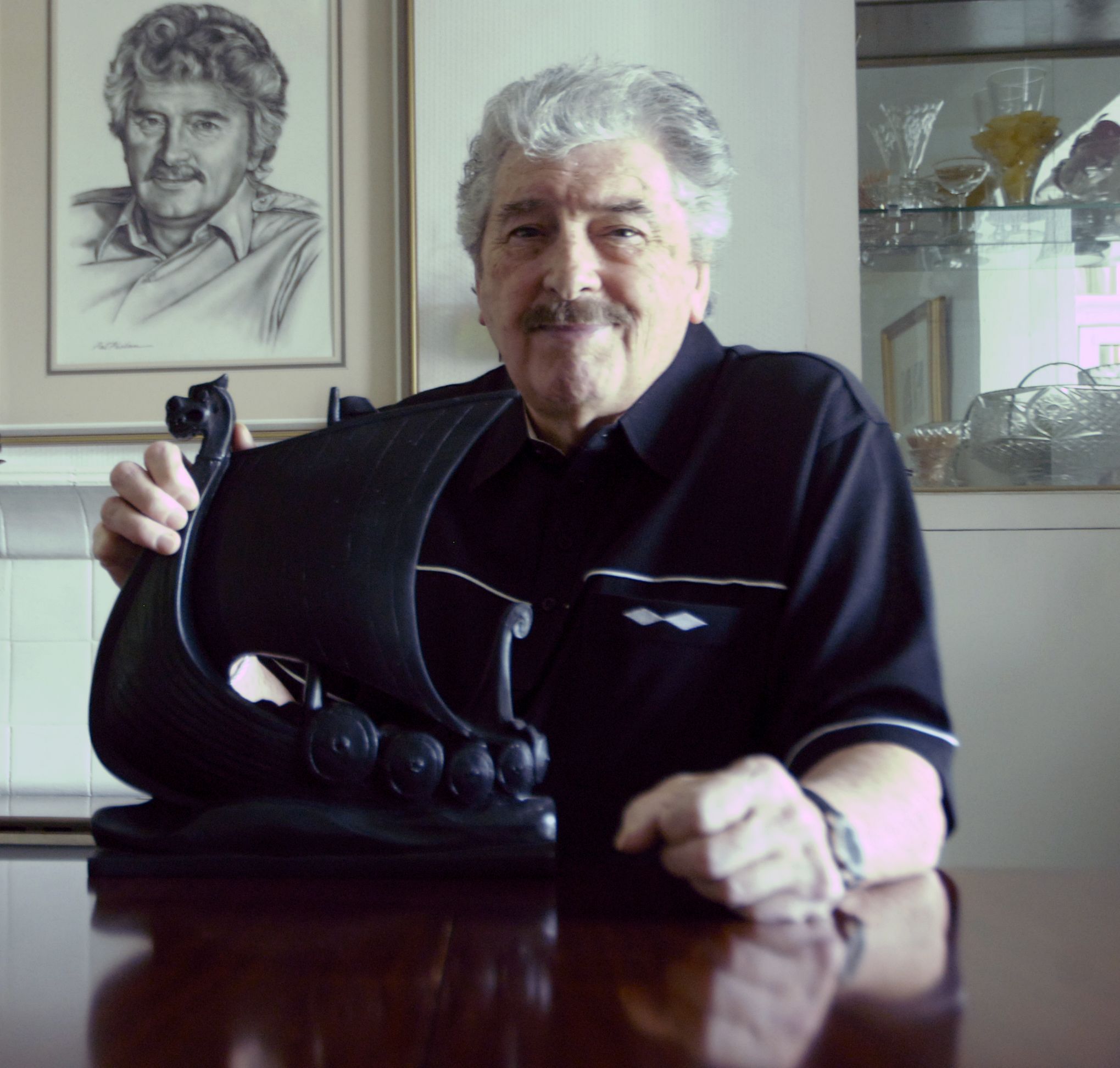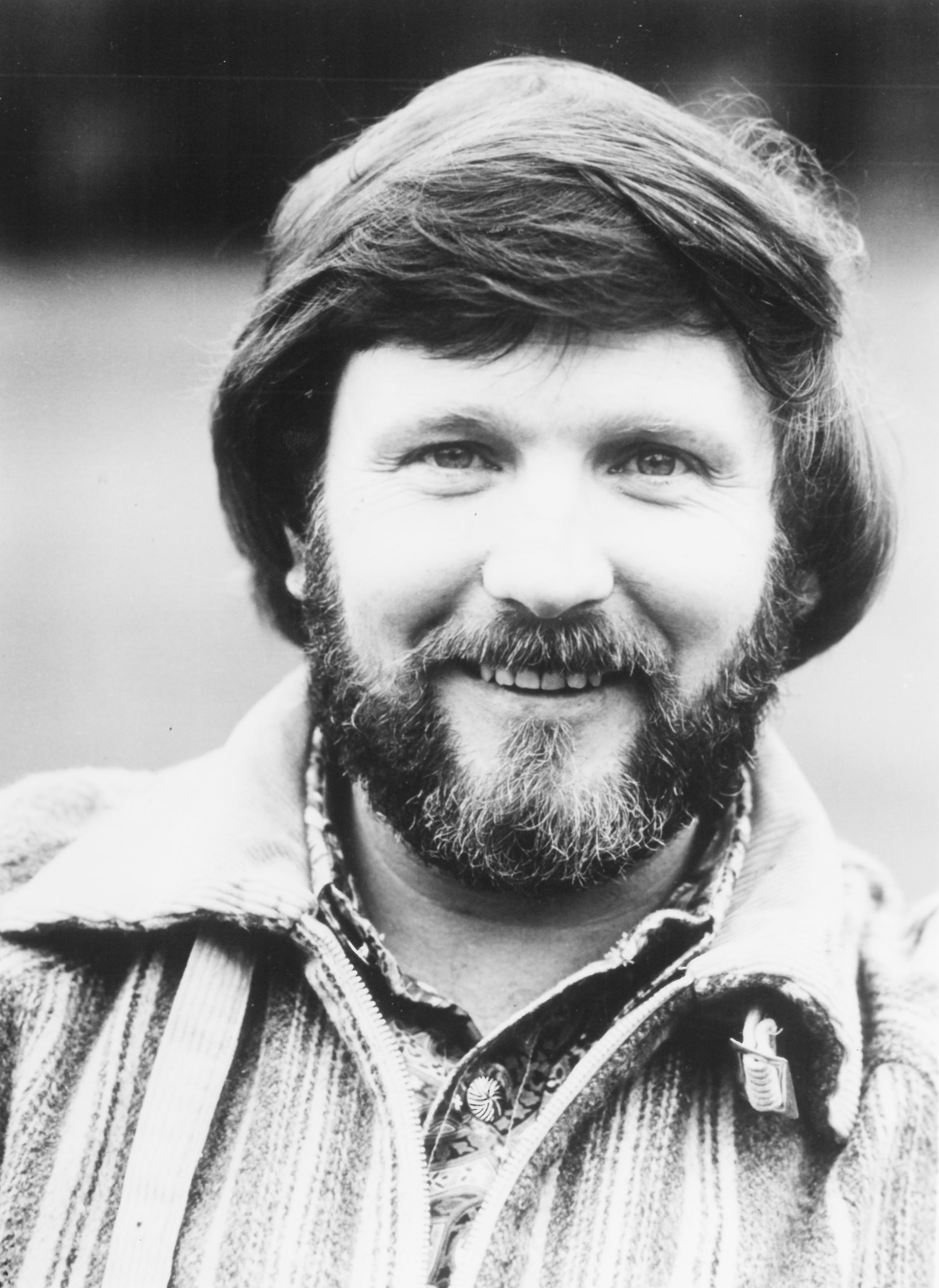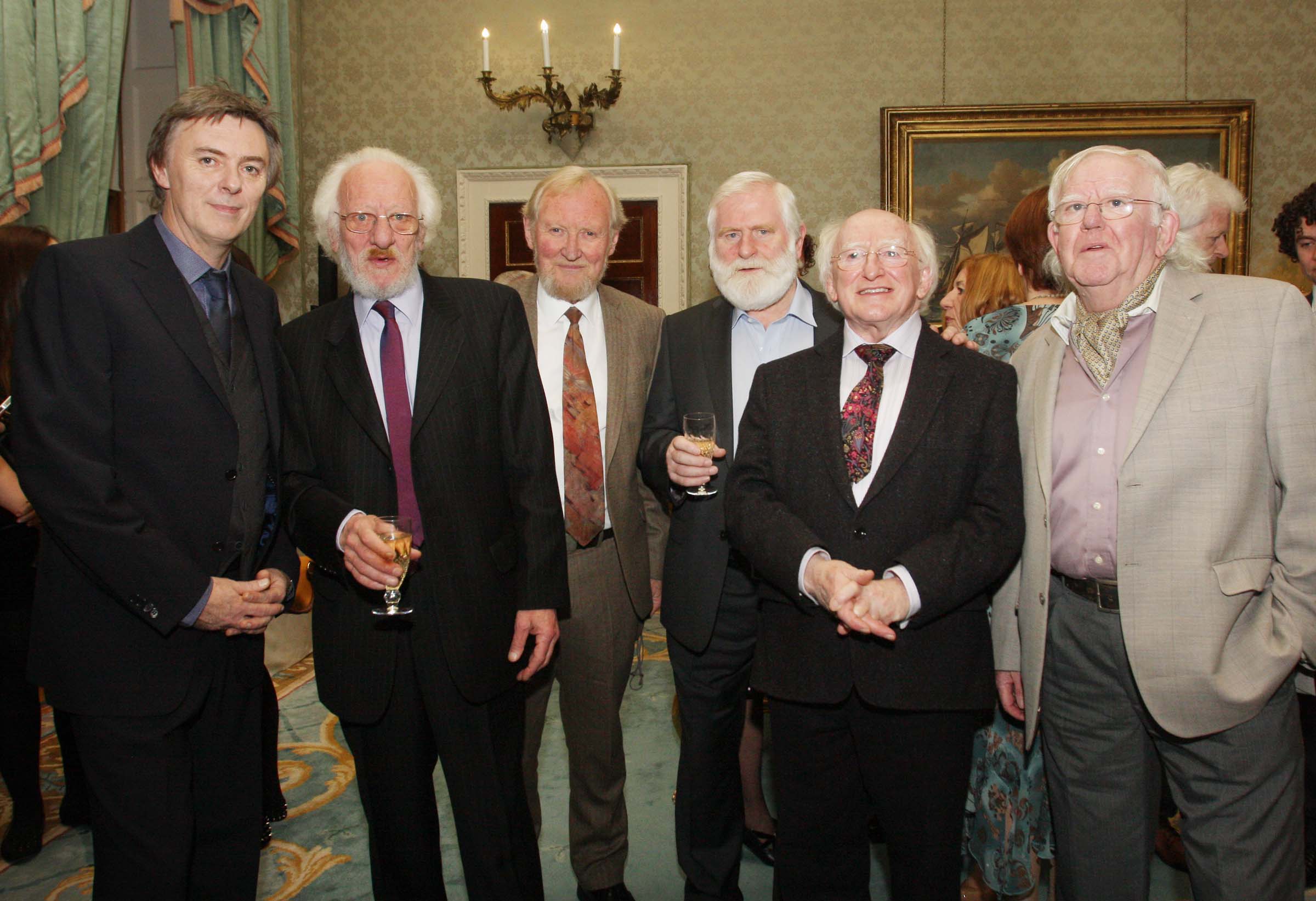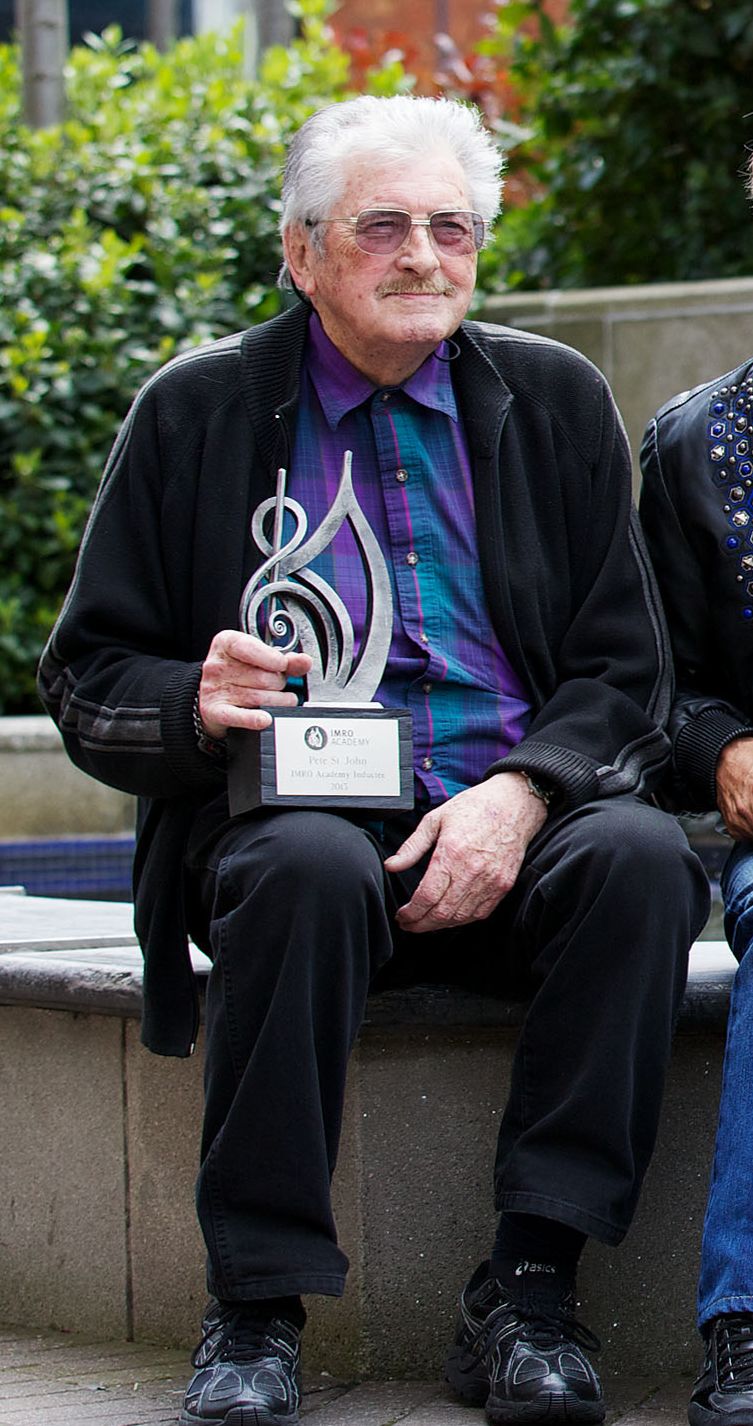The Fields of Athenry
By Pete St. John

Few songs have the power to unite a nation quite like ‘The Fields of Athenry’. Ubiquitous at sporting events, pub sessions and music festivals around the country – and indeed the world – the song has become the unofficial Irish anthem, with more than 800 versions on YouTube. Describing the impact of the famine on the people of the area in Galway around the town of Athenry, the ballad was originally penned by Pete St. John in 1979 and performed by Danny Doyle that same year. It has since been officially covered by over 500 performers. Paddy Reilly's version spent 72 weeks in the Irish charts in the 1980s, before The Dubliners, Frank Patterson, Johnny McEvoy, Mary Black, Dublin City Ramblers, Ronnie Drew, The Barleycorn, Sonny Knowles, Brendan Shine and Daniel O’Donnell all made the song their own. In 2003, Boston-based Celtic punk outfit the Dropkick Murphys gave fresh life to ‘The Fields of Athenry’ on an international stage, releasing their version on the album Blackout, and making it a staple at their famed hometown St. Patrick’s Day concert in Boston. In sport, the song is sung by Glasgow Celtic fans, and has been rewritten as ‘The Fields of Anfield Road’ by Liverpool fans. It is mass-sung at Irish rugby internationals. However, most enduring of all are the extraordinary images of Irish fans at Euro 2012 pouring their hearts into singing ‘The Fields of Athenry’ for over 8 minutes, even as Ireland were being beaten 4-0 by Spain, in Gdansk, Poland.
An Irish folk ballad, ‘The Fields of Athenry’ tells the story of a young man, Michael, from the Athenry area, 25 miles from Galway, who is caught stealing corn to feed his family during the Irish famine (1845-1850) and deported to Botany Bay, Australia. The song is conversational, words snatched across the local prison wall, between the young man and his wife Mary, as he waits for the deportation order to be executed. Arguably the country’s most famous song, it was written by Dublin-born folk singer Pete St. John (1932-2022) – real name Peter Mooney – whose other songwriting credits include ‘The Rare Ould Times’ and ‘The Ferryman’.
“I set the song in Athenry, a little Galway village where the potato fields lay empty – the fields of Athenry… The people were starving, and corn had been imported from America to help them. But it was Indian corn, with a kernel so hard that the mills here in Ireland couldn't grind it,” St. John told the Scottish Daily Record.
“So, it lay uselessly in stores at the docks in Dublin. But nobody trusted the (British) authorities – the Crown – to tell them the truth, so hundreds of starving Irish people marched on the city to get the grain. Some were arrested and shipped off to Australia in prison ships.
“I wrote a ballad about it," he added, "inventing Michael, Mary, and a baby – a family torn apart because the husband stole corn to feed his family.”
While the song’s protagonists Michael and Mary are fictional, the inclusion of the lyric ‘Trevelyan’s corn’ cemented the name of a real-life British Civil Servant, Charles Edward Trevelyan, into folklore. The same Trevelyan reportedly said of the famine: “The judgement of God sent the calamity to teach the Irish a lesson.” There was a widespread view among the British authorities, ably fostered by Trevelyn, that the Irish had too many children. Trevelyan’s role in the Treasury included making decisions that would limit the funding relief being made available to the Irish citizenry, devastated by the infamous blight on the potato crop that saw people starving just about everywhere across the country. “The real evil with which we have to contend,” Trevelyn said, apparently without a shred of compunction, “is not the physical evil of the Famine, but the moral evil of the selfish, perverse and turbulent character of the people.” He did not, it has to be said, care very much for – or about – Irish people.

Danny Doyle: the first singer to record 'The Fields of Athenry' (Pic from the Hot Press Archive)
Danny Doyle: the first singer to record 'The Fields of Athenry' (Pic from the Hot Press Archive)
“Against the famine and the Crown I rebelled,” the fictional Michael says in the song, making sure that there is no room for misunderstanding who the mass of Irish people ultimately believe was responsible. It is estimated that a million Irish people died in the famine and two million emigrated as a result, reducing the population on the island from over 8 million to 5 million in a relatively short period. Indeed the population of the island fell as low as 4 million in 1931 – a time by which, had the famine not happened, it would most likely have exceeded 10 million.
Carried by its wonderfully hummable melody, the famine-based narrative of ‘Fields of Athenry’ tapped into the very core of the modern Irish psyche and the song became an Irish anthem, widely sung both at home and by the Irish diaspora around the world. It was an immediate hit in Ireland. The original single release of the song by Danny Doyle reached No.2 in the Irish charts. But that was just the start of it: the balladeer Paddy Reilly, from Rathcoole in Co. Dublin, released it as a single in 1982 and it was a hit all over again, with his version remaining in the Irish charts for a previously unheard-of 72 weeks.
As is often the case with folk songs, some controversy arose around the origins of ‘Fields of Athenry’ in the mid-90s when it was claimed that the lyrics were taken from a broadsheet ballad published in the 1880s. However, Pete St. John has since confirmed that he wrote both the music and the lyrics, while folklorist and researcher John Moulden found no basis for the 'broadsheet' claim. Further chart success followed: first for Cox Crew, with a dance version and club mix, in 1999; and then for Dance To Tipperary whose own beat-driven treatment peaked at No.6 in 2001.

Celebrating 50 years of The Dubliners with (second from right) the President of Ireland Michael D. Higgins – Eamon Campbell, Sean Cannon, John Sheehan and Paddy Reilly,
Celebrating 50 years of The Dubliners with (second from right) the President of Ireland Michael D. Higgins – Eamon Campbell, Sean Cannon, John Sheehan and Paddy Reilly,
The song took on a life of its own when it was used as a sporting anthem. It began with the Galway inter-county GAA team. From there it was adopted by Irish soccer supporters at the 1990 World Cup, in Italy. In 1991, it was sung by Pete St. John himself to 60,000 fans at a club testimonial game for the Irish goalkeeper Packie Bonner of Glasgow Celtic – after which it became a Celtic favourite.
Next, it was taken up by Liverpool FC, where the spin-off ‘The Fields of Anfield Road’ is regularly mass-sung by the Anfield faithful. More recently, Irish rugby fans sang it to drown out the All Blacks haka performance in the build-up before Ireland’s game against New Zealand at the Aviva Stadium, Dublin. As Late Late Show host Ryan Tubridy commented on his RTE Radio 1 show, “This is our haka.”
But the song’s most famous sporting moment came when it was sung for the final eight minutes by Irish fans at the 2012 UEFA European Football Championship, when Ireland were being beaten 4-0 by Spain. This particularly moving rendition prompted the then-Arsenal manager and French TV pundit, Arsene Wenger, to ask for silence so he could hear the Irish sing. The viral video subsequently racked up over 2 million YouTube views.
A genuine anthem, the song has crossed genres and generations and been translated into 50 languages. It continues to make headlines. The multi-million selling US-Irish outfit Dropkick Murphys originally released their own epic, punky version on their Blackout album (2003). A 7” release of the track also featured ‘Shipping Up to Boston’ – which became a needle-drop musical moment from Martin Scorcese's Oscar-winning film The Departed, securing ‘The Fields of Athenry’ position at the heart of Irish-America’s underdog identity.
It subsequently became an integral part of that rambunctious band's St. Patrick’s Day Boston homecoming gigs. In 2021, it was performed by Dropkick Murphys at the New York State Fair, in tribute to legendary Irish-American barkeeper Peter Coleman. Meanwhile, closer to home, a Newry teenager was dubbed a ‘Michael for the social media age’ when he refused to stop singing the song, was arrested and fined, then told by police to ‘learn the whole song’.
Pete St. John gave a rare interview to University Times in which he talked about his plans to write a new anthem for climate change, which became 'Waltzing On Borrowed Time'.
“I took all of the interest that I had in writing and I compressed it into song-writing,” he explained of his devotion to his craft. “And it worked. I mean, ‘Fields of Athenry’ is just ridiculous. It’s a kind of calling card for me.”
It is that for sure – and a whole lot more besides…

Pete St. John at his induction into the IMRO Academy in 2015, by Patrick Bolger
Pete St. John by Patrick Bolger
